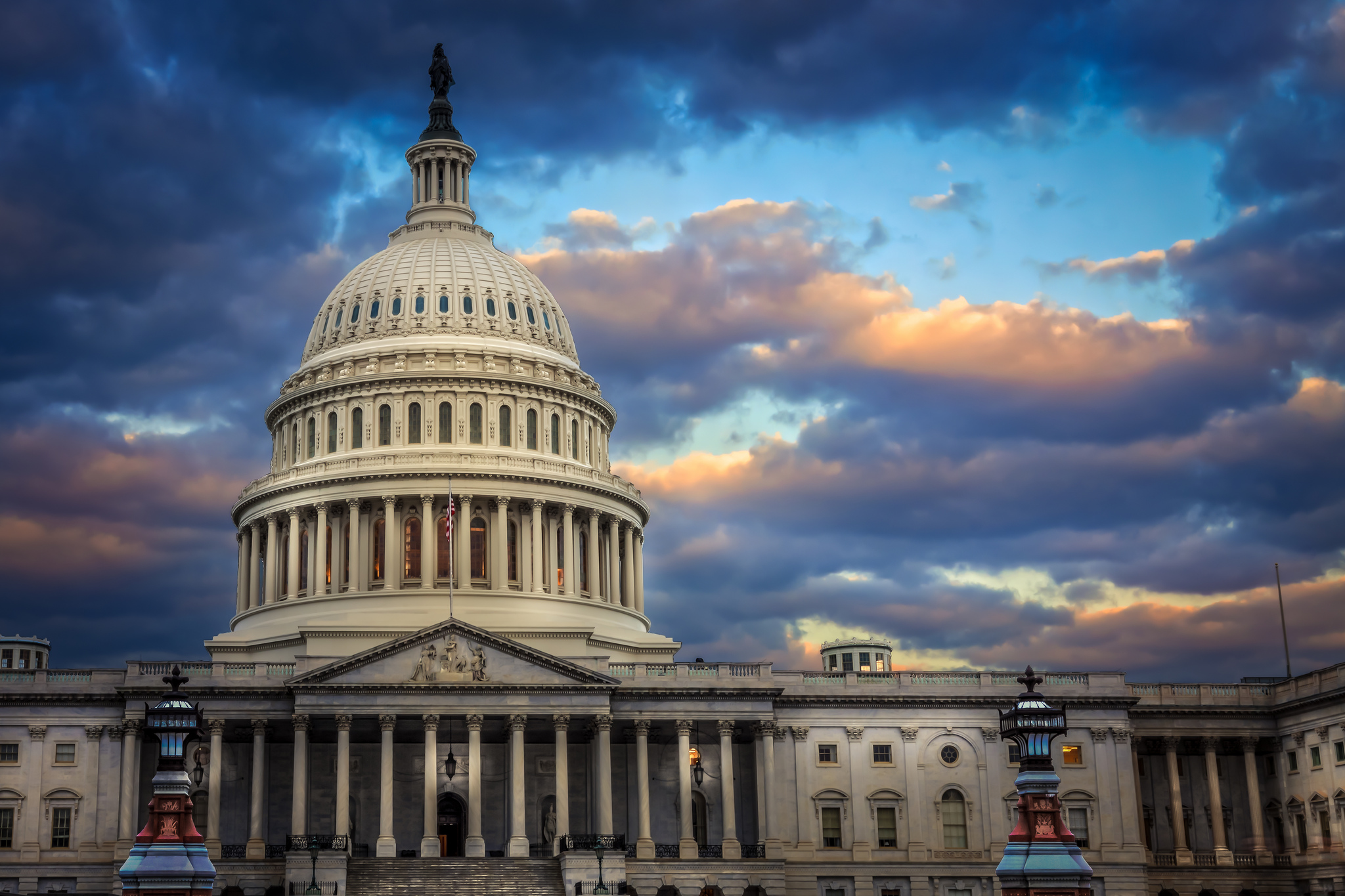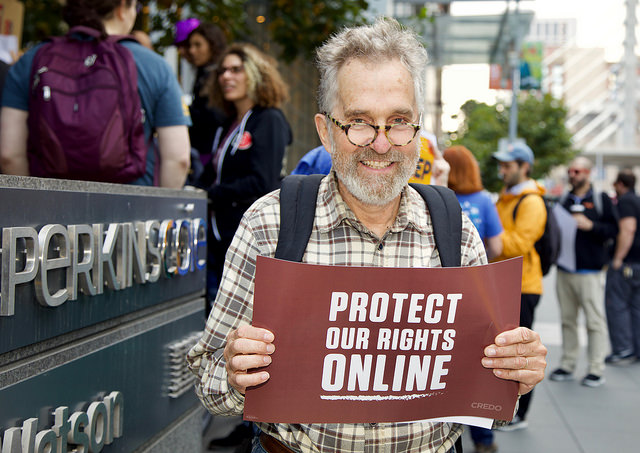The FCC and Net Neutrality
 https://www.flickr.com/photos/premierehdr/10761172416/in/photolist-hoVPDs-RW4S6o-rkbFJ-gkaqTb-pqL5to-bihpBV-8JEStJ-drqQ65-qwjUiB-99XmPQ-qwiwSV-r9ycJG-9BJ5jX-8mnm6G-h1Ki5y-99UdYz-qW2LAX-pRKq39-pRKpN1-a2AGMo-qwcbKJ-pRKpXj-qLsAXy-qwcbxj-8MwotY-99Ufxa-6w4cLX-ph1vqc-99UeGT-rk9Ut-JbMKtc-8pu7Fx-99Uhat-99Xnp9-bsgeeR-8Xcqc6-pRKpRh-rkc3i-cEez57-djr4gh-99Xnt9-99Uh9g-esWFQV-c73bHj-99UfYV-5b3iFt-9E7kvH-99Uf2x-99XmKb-o3jXQ5
https://www.flickr.com/photos/premierehdr/10761172416/in/photolist-hoVPDs-RW4S6o-rkbFJ-gkaqTb-pqL5to-bihpBV-8JEStJ-drqQ65-qwjUiB-99XmPQ-qwiwSV-r9ycJG-9BJ5jX-8mnm6G-h1Ki5y-99UdYz-qW2LAX-pRKq39-pRKpN1-a2AGMo-qwcbKJ-pRKpXj-qLsAXy-qwcbxj-8MwotY-99Ufxa-6w4cLX-ph1vqc-99UeGT-rk9Ut-JbMKtc-8pu7Fx-99Uhat-99Xnp9-bsgeeR-8Xcqc6-pRKpRh-rkc3i-cEez57-djr4gh-99Xnt9-99Uh9g-esWFQV-c73bHj-99UfYV-5b3iFt-9E7kvH-99Uf2x-99XmKb-o3jXQ5
On December 14th, the Federal Communications Commission (FCC) passed the vote in repealing the Obama-era rules that required ISP services to treat all web traffic equally, putting the future of the internet into question.
The debate on net neutrality seemed to erupt suddenly without any gradual buildups, but diving into the problem will tell a different story. Back in January of 2014, a US Court of Appeals ruled that broadband providers were not under obligations to treat internet traffic equally. In addition to this adjustment, the FCC at the time also proposed to define internet users as consumers and “content providers who do not enter into specific arrangements with broadband providers.” The backlash was severe and immediate. More than 100 technology firms, including some of the most prominent ones such as Microsoft and Google, wrote to the FCC that the changes would be a “great threat to the internet.” Aside from these technology firms, more than a million people also signed petitions to the FCC demanding it to cease plans to control the internet.
The current net neutrality rules were set forth by the FCC back in March of 2015, in which it provided extensive details on how to regulate internet providers. Specifically, it reclassified the internet as a telecommunications service rather an information one. It was an important classification as it subjected internet providers under Title II of the Communications Act, banning internet service providers from prioritizing, blocking or throttling any users’ use of the internet.

Net Neutrality vs. ISPs
Net neutrality is the very principle that prevents any internet service providers from blocking online content or intentionally manipulating the speed of internet traffic. To some extent, it is the equivalent of hampering freedom of speech, in which one should not interfere or discriminate against another’s action for the sake of their own satisfaction. Without net neutrality, major internet service providers such as Verizon in the United States and Rogers in Canada can control their users’ access to different websites, charge extra fees for preferential treatment (i.e: accessing YouTube platform), and invade users’ privacy through their website history. Put simply, net neutrality protects the public’s choice online.
A righteous perspective?
For Ajit Pai, Chairman of the FCC, the push to repeal the FCC’s 2015 decision on net neutrality is completely justifiable. In an interview with the Wall Street Journal, Mr. Pai explains that the decision is a means to loosen “heavy-handed” internet regulations that restricted internet providers. In addition to this statement, he added that the FCC’s decision to regulate the internet, a reference to the 2015 decision, failed “consumers and businesses alike”. To consolidate his stance with the providers, he justified that the rules have cost providers money and led them to invest less in expanding connectivity. In response to the effect of this reversal, Mr. Pai stated that it would make better, faster, and cheaper internet access and increase jobs. Mr. Pai’s statement, for the providers, is reasonable. Even though his response towards the effect of the change is reassuring, he did not take consumer interests into consideration as his stance was certainly pro-business. Expectedly, backlash against the plan he masterminded was apparent after the decision.
Following this decision by the FCC, Attorney Generals from more than 20 states filed a combined lawsuit to block the decision. More than that, federal and state lawmakers have now considered looking for legislative solutions. By now, there are only 81 members of the House willing to protect net neutrality, which makes it ever more difficult as a bill traditionally requires 218 votes to pass.
What happens next?
The question centres around the consumers, as they are the ones that will be affected the most. In the short run, there should be no immediate effects on consumers, as sudden changes will anger consumers and cause legal problems. It is in the long run that significant changes could be put in place. Internet service providers can charge online providers, such as Netflix, more on traffic in the internet. ISPs can create faster lanes on their own sites to compete with each other. Moreover, they can also block specific sites if they deem them inappropriate or harming. But the effects will not be all bad. With this repeal, there should be more intense competition between major broadband companies that will perhaps drive down the prices. Additionally, the repeal will also empower ISPs to have their own free streaming platforms similar to Youtube that will perhaps attract consumers. As for protection for internet users, the FTC’s broad antitrust and consumer protection laws will now be best suitable in stopping harmful businesses online, as the FCC handed its oversight over as part of the changes.
All in all, the future for internet remains uncertain for everyone, especially for those who masterminded the plan, as additional laws are required to finalize the decision and there remains a lawsuit to attend to. For everyday users, having a voice in the ongoing matter will be a great force against a repeal made by the few, as it is the most effective tool consumers have.
